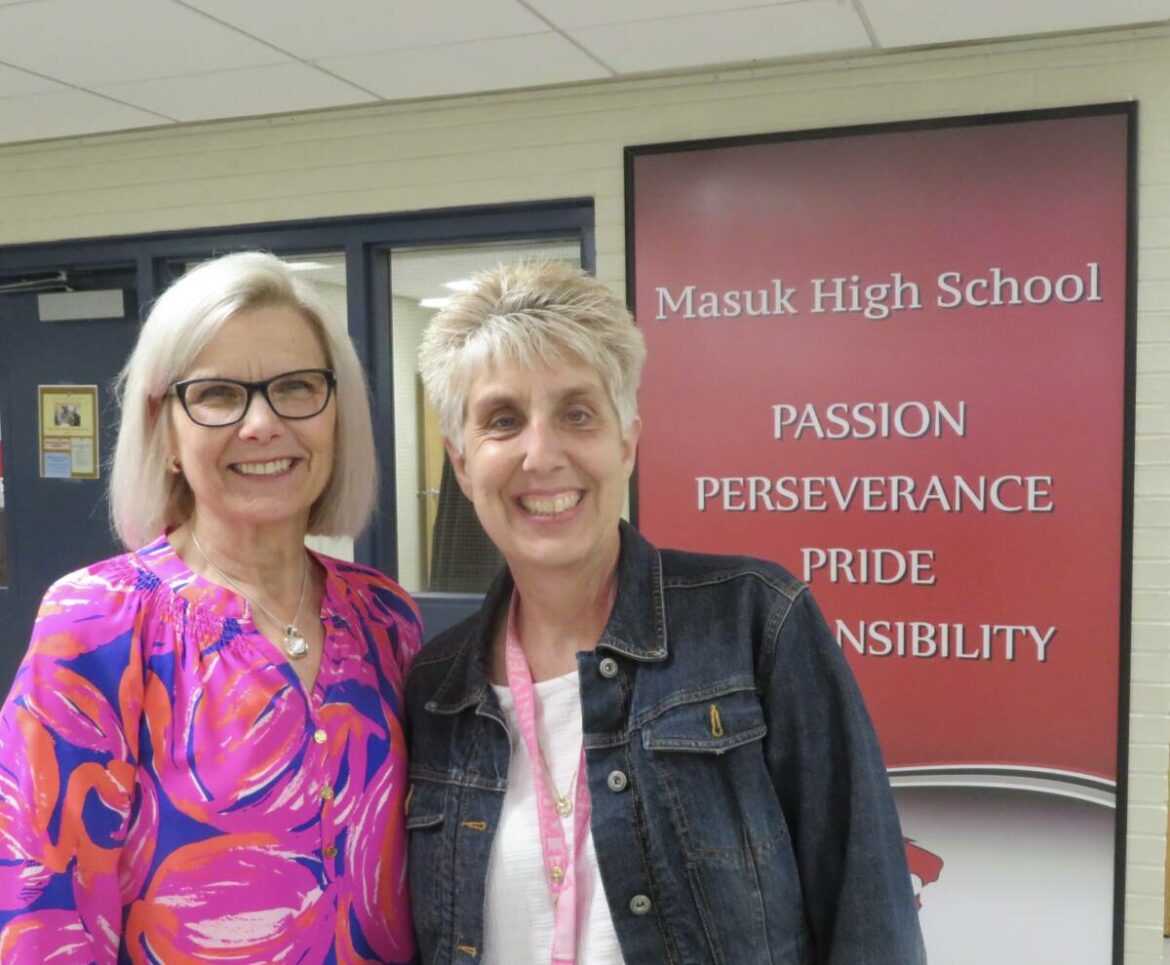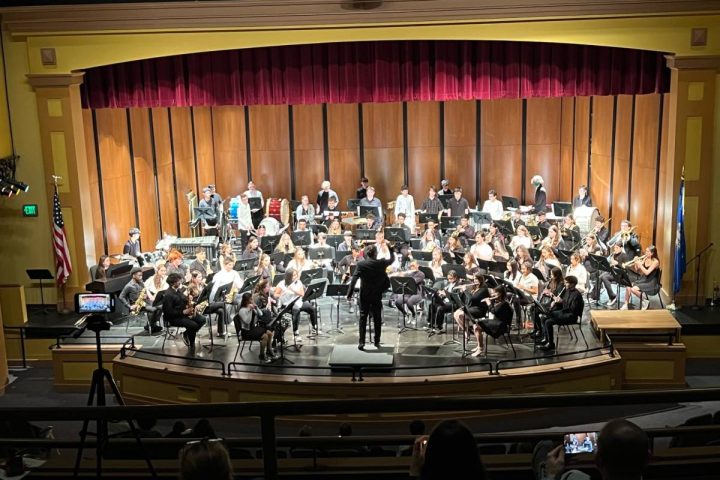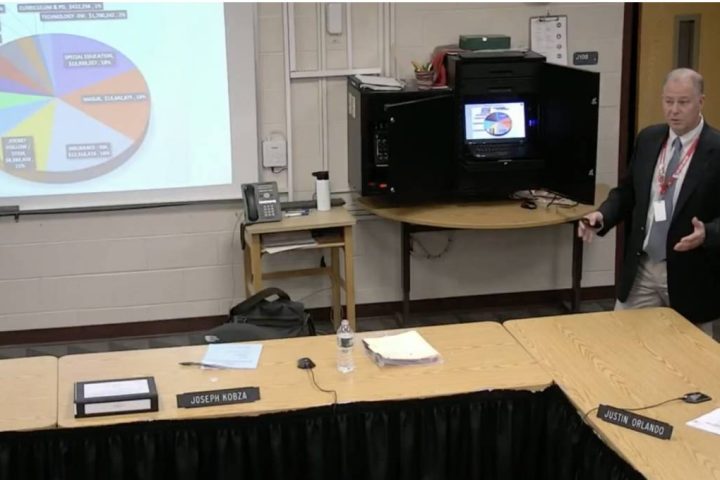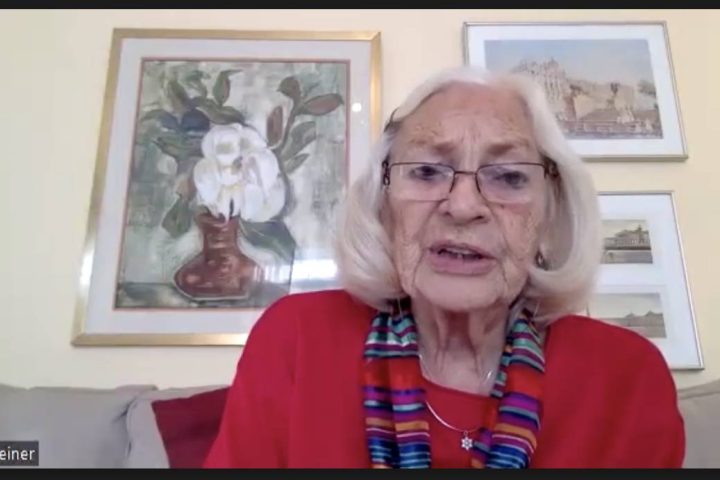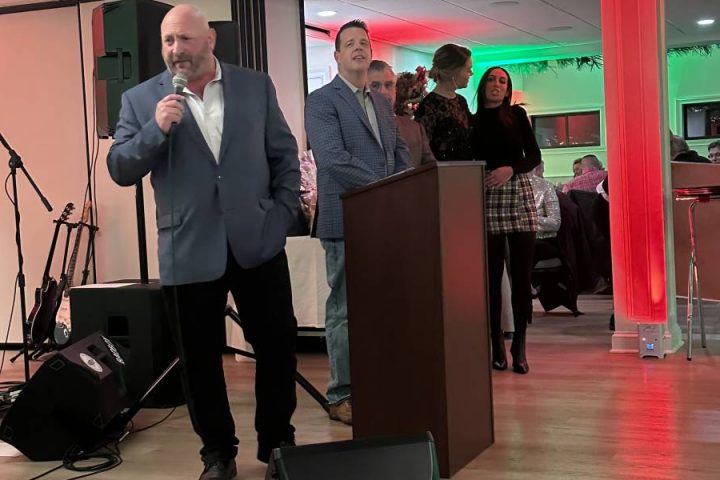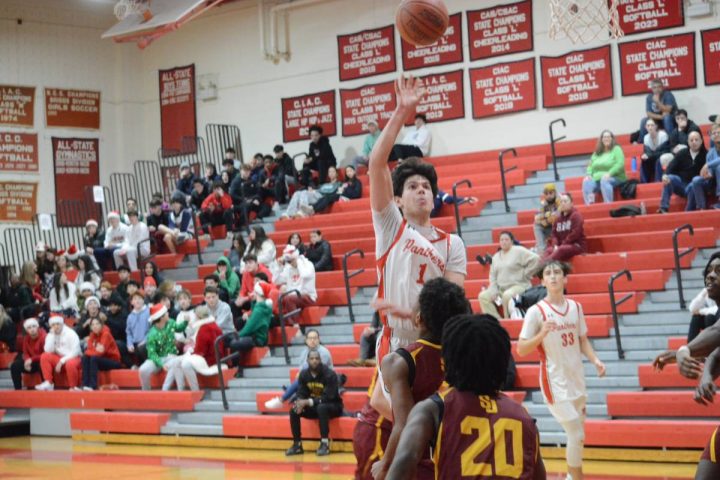MONROE, CT — Masuk High School teachers Bonnie Waring and Nancy Zukowski, who are both retiring this spring, will leave their school in a good place. The women served as co-chairs of the steering committee that guided Masuk’s successful accreditation process, earning Masuk the lofty status for another 10 years.
Waring taught for 36 years and Zukowski for 42. Both participated in four accreditation processes over the course of their careers, serving as co-chairs for the last two.
“I think it’s a fulfilling experience,” Zukowski said during a recent interview in Principal Steve Swensen’s office. “I think we contributed to this school.”
“It’s just what we do and a really good friendship came out of this,” Waring said.
“We work really well together,” Zukowski agreed.
Swensen received the good news on May 2, when the Commission on Public Schools of the New England Association of Schools and Colleges (NEASC) notified him of the vote to continue Masuk’s accredited status.
The decision was based upon the Decennial Accreditation report prepared by the visiting team in October of 2021.
“We feel that the commission’s decision confirms the results of the extensive self-reflection, which our faculty and administrators conducted,” he said. “The faculty, staff, and Monroe community care deeply about our students and their learning and that was clear to the NEASC visiting team.”
“We are convinced that the findings of our self-reflection, coupled with recommendations of the Commission on Public Schools’ visiting team, will assist us in developing priorities for further improvements in the school,” Swensen added.
“It shows the school is meeting the standards and if we’re not meeting it, what we need to do to get there and we want to meet our own standards,” Zukowski said. “It’s a good reflection of our school.”
Swensen said graduates of high schools accredited by NEASC have an edge over other applicants, while trying to gain admission to the top colleges and universities.
If NEASC’s Commission on Public Schools chose not to renew Masuk’s accredited status, Swensen said the worst case scenario would have been putting the school on probation.
Impressive progress
According to the commission’s decision letter, it was impressed with the progress made on the Priority Areas for Growth and increased alignment with the Principles of Effective Practice since the time of the Collaborative Conference visit in November 2019.
The commission commended Masuk’s faculty and staff for many things including:
- The inclusion of various stakeholders in the process of creating the vision of the graduate
- The implementation of a flex period to provide students with further opportunities to connect with adults and obtain additional academic, physical, and social-emotional support
- The observable commitment to implementing student-centered instructional strategies
- The creation of the Peer Leadership Team and efforts to increase student voice in improving school culture
- The positive classroom culture as reported by students, staff, and parents
- The creation of new clubs over the past few years to include a wider array of student interests
The Commission on Public Schools requires that accredited schools submit progress reports following the Decennial Accreditation visit to indicate changes made to improve their school.
In anticipation of these progress reports, the professional staff and administrators will immediately begin a follow-up program to review the findings of the visiting team report to establish the order in which recommendations will be carried out, according to Swensen.
‘A large task’
The accreditation process is a large task, in which every faculty member serves on a committee and must approve all studies and reports generated by the steering committee, according to Zukowski.
The process for Masuk’s latest accreditation began in mid-2018, but the COVID-19 pandemic stalled its progress. By the time Swensen was hired in August of 2020, the disruption from the pandemic made Masuk two months late in filing its NEASC reports.
It was a time when teachers were stressed out, while trying to teach students live and via video at the same time.
“I didn’t want to put anything on the staff,” Swensen recalled. “I took all of it, because I didn’t want them doing anything else. They had a lot on their plate.”
“When we were hybrid, that was not high on our priority list,” Zukowski said. “We had to teach.”
“It was completely new to us,” Waring said of teaching during a pandemic.
Swensen said Waring and Zukowski took care of the hospitality when the Commission on Public Schools visited the high school.
“What Bonnie and I did was try to make it as less time consuming as possible,” Zukowski said.
A sigh of relief
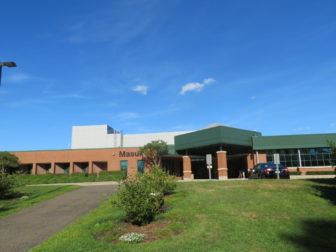
“There’s always a huge sigh of relief when they leave,” Swensen said of the commission’s visit.
Though the accreditation process is over, he said Masuk’s process still leads educators’ work. There will be a continued focus on social and emotional learning, while helping students adjust after the pandemic. Administrators will also continue to tailor curriculum to the district’s vision of the graduate.
Ten years from now, when Masuk seeks its re-accreditation, Swensen said he won’t be able to lean on the experience of Zukowski and Waring. He expressed his gratitude to them for seeing it through one last time.
Waring looked at Zukowski, who was seated beside her, and said, “you could have retired.”
“Neither of us would have retired,” Zukowski replied.
Both teachers said they enjoyed their time working in Monroe Public Schools and neither was surprised by the positive report Masuk received from NEASC.
Of Monroe, Waring said, “it’s really one of the best communities to educate your children.”

